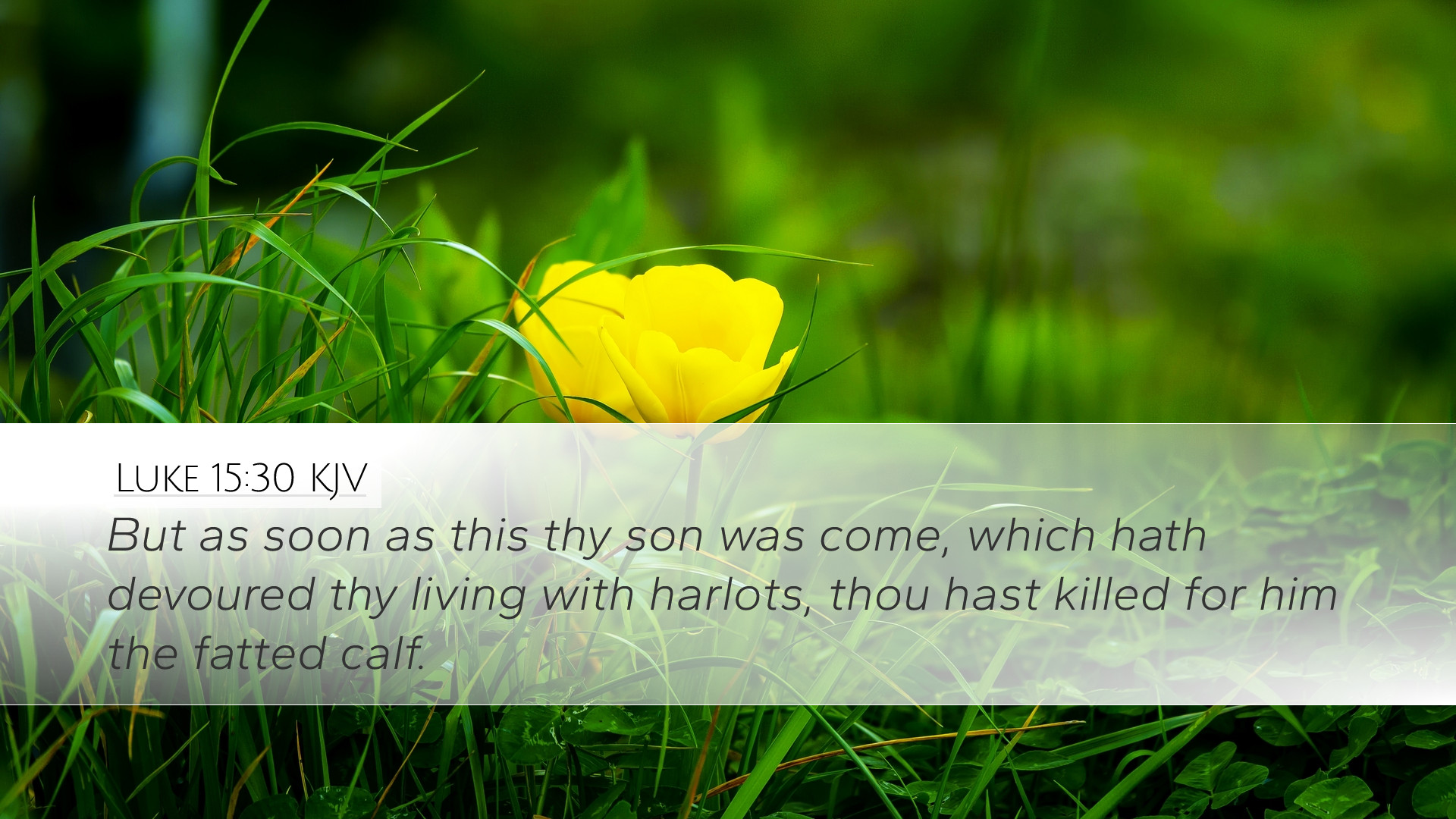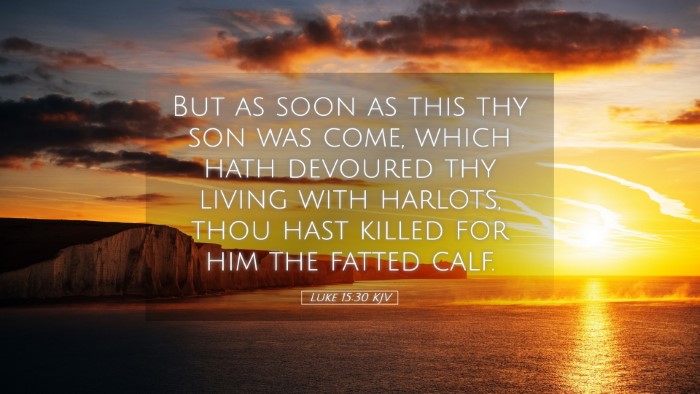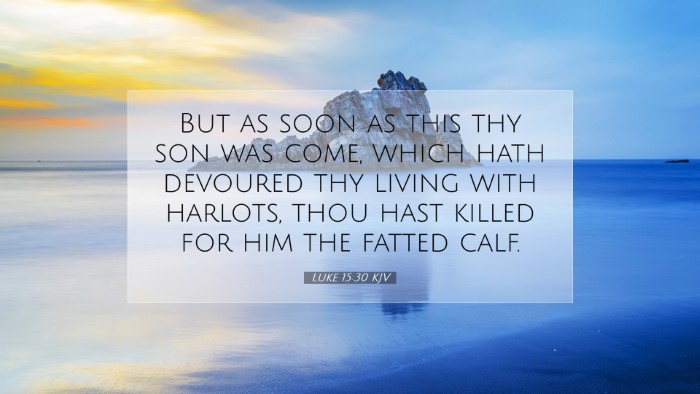Commentary on Luke 15:30
Luke 15:30 states:
"But as soon as this thy son was come, which hath devoured thy living with harlots, thou hast killed for him the fatted calf."
Introduction
This verse occurs in the context of the Parable of the Prodigal Son, a powerful narrative that illustrates God's grace and redemption. The interaction between the elder brother and the father reveals deep theological insights about human nature, God's forgiveness, and the familial dynamics evident in relationships.
The Context of the Parable
To fully understand Luke 15:30, it is crucial to examine the entire parable (Luke 15:11-32). Jesus tells this parable in response to the Pharisees and scribes who criticized Him for receiving sinners. The parable itself represents God’s boundless mercy and the joy that comes with redemption.
Key Characters
- The Prodigal Son: Represents sinners who stray from God's path but return in repentance.
- The Elder Son: Embodies the self-righteousness found in those who believe they are deserving of God's favor based on their works.
- The Father: A figure of divine grace and unconditional love who eagerly welcomes back the penitent sinner.
Analysis of Luke 15:30
The elder son's statement reflects his feelings of jealousy and resentment. His attitude is emblematic of a common human condition where individuals measure their worth and righteousness against others. The emphasis on how the younger son has squandered his father's wealth with reckless living further heightens the elder brother's sense of injustice.
Insights from Matthew Henry
Matthew Henry notes that the elder brother’s complaint highlights key aspects of pride and entitlement. He points out that the elder brother fails to appreciate what he has always had—the father’s enduring presence and love. Henry emphasizes that this parable reveals a truth about human nature: it often seeks to justify itself by pointing out the failures of others rather than recognizing the grace that one has been given.
Insights from Albert Barnes
According to Albert Barnes, this verse illustrates the elder brother's misunderstanding of the father’s grace. He is angered not only by the celebration of his brother’s return but also by the perceived favoritism shown by the father. Barnes explains that the phrase "this thy son" reveals a distancing from his brother, emphasizing division rather than family unity. This perspective invites readers to consider their own attitudes toward those they deem less deserving of grace.
Insights from Adam Clarke
Adam Clarke provides a commentary on the worldview of the Pharisees represented in this elder brother. Clarke argues that the elder son's disdain for the father's mercy towards the younger son reflects a broader societal attitude towards repentance—those who transgress should be punished more severely. Clarke urges readers to embrace the reality that forgiveness should always be offered generously, regardless of previous sins.
Theological Implications
This verse and its commentary provoke deeper theological conversations regarding grace, forgiveness, and the nature of God’s love. Here are several implications worth considering:
- Grace Beyond Measure: God’s love extends to all—no one is beyond redemption.
- The Danger of Self-Righteousness: Those who consider themselves 'righteous' can easily fall into jealousy and resentment, missing the essence of God's grace.
- Family Dynamics and Spirituality: The parable encourages reflection on how familial relationships mirror our relationship with God. Desiring the approval of God must transcend rivalry or envy among believers.
Conclusion
Luke 15:30 challenges believers to examine their attitudes toward grace and forgiveness. It invites us to celebrate rather than resent the grace given to others. By reflecting on the attitudes of the elder son, we are reminded of our own tendencies to keep score of righteousness and to impose conditions on forgiveness. This parable ultimately calls us to embody the father’s love, extending grace to all, just as it has been extended to us.


